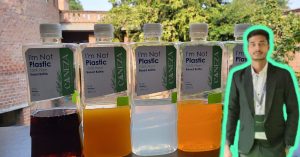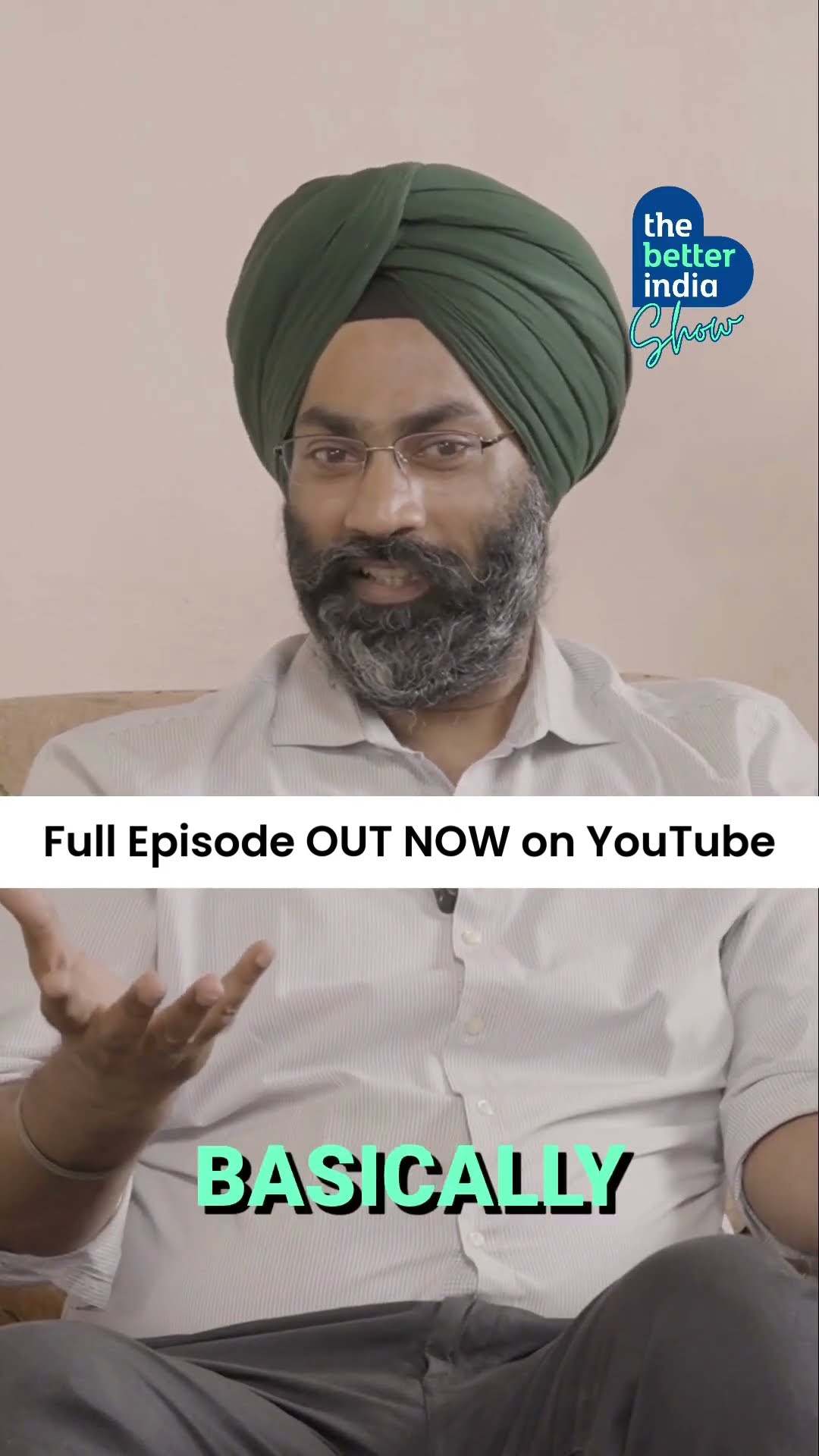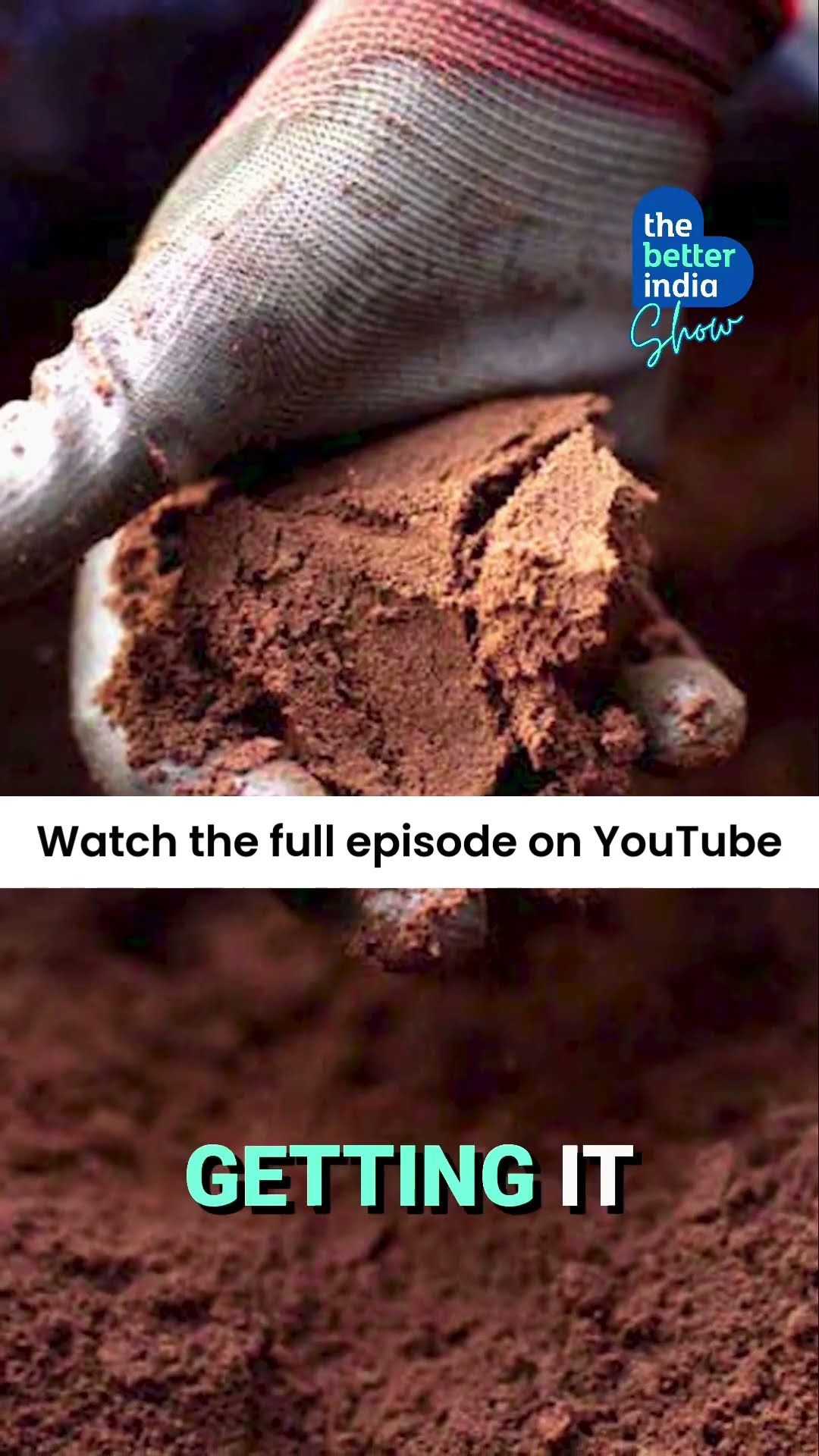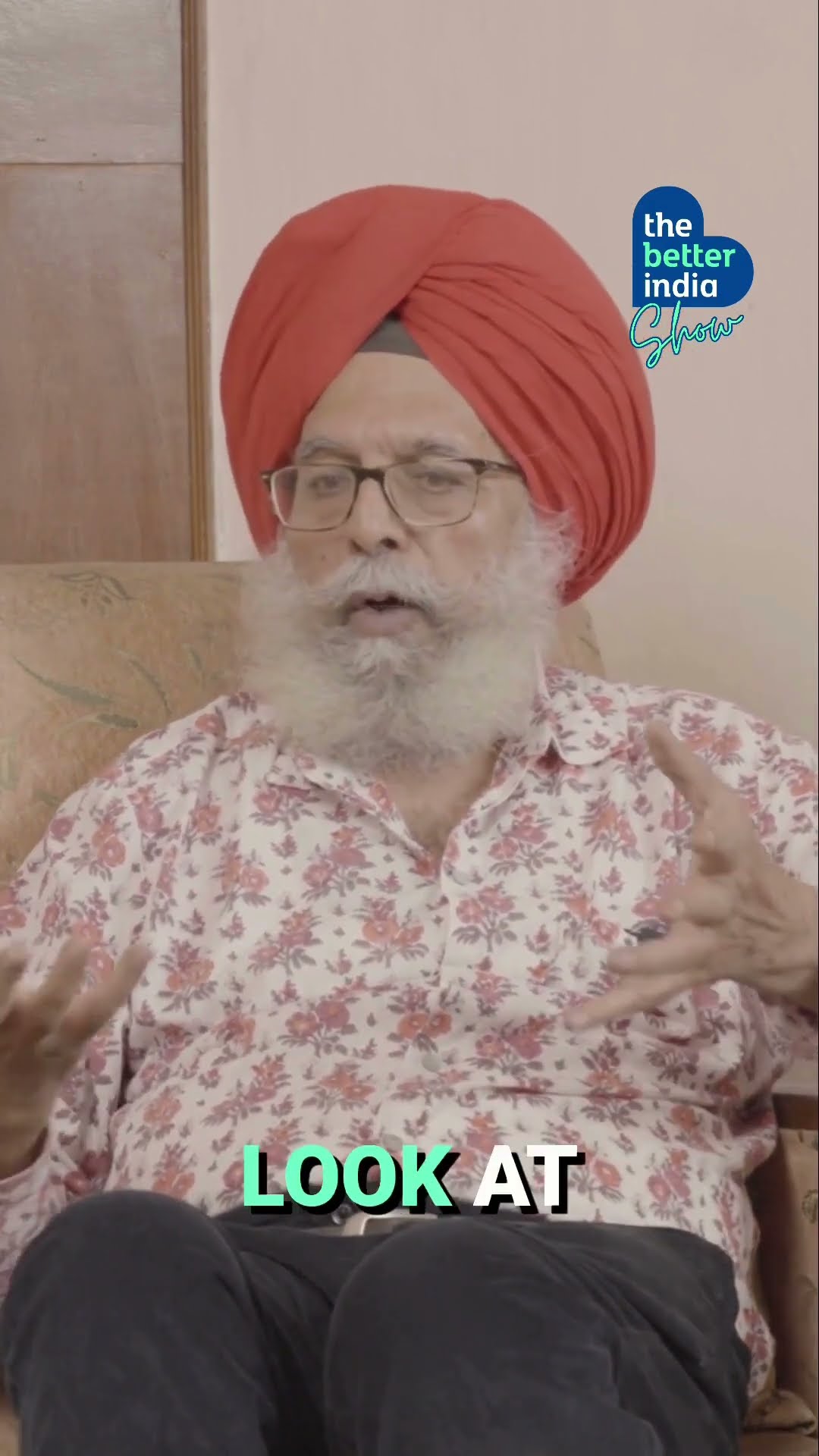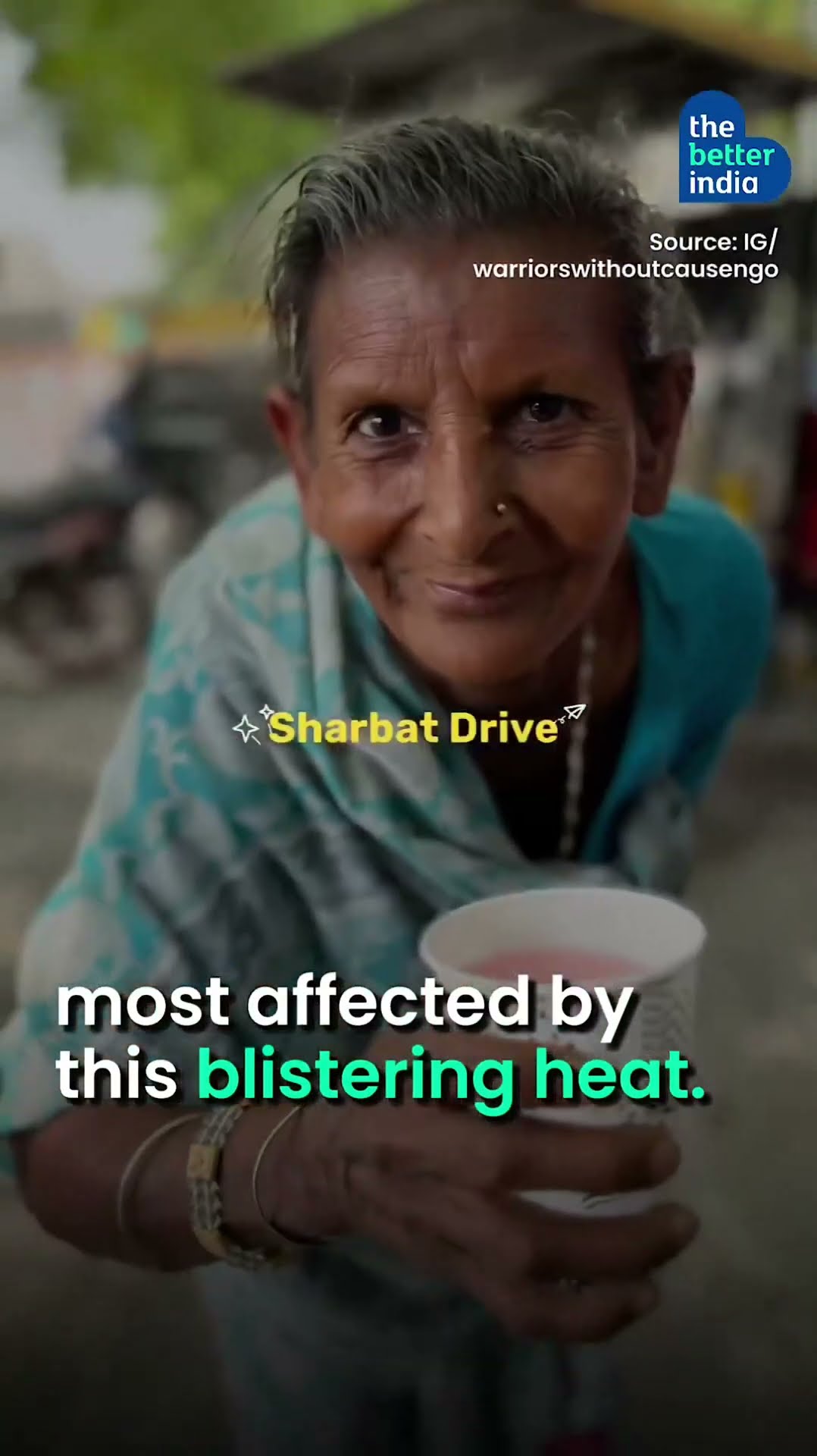‘Couldn’t Dream Earlier So I Started at 37’: Woman’s Startup Uses Flowers to Make Rs 2 Lakh/Month
Poonam Singh started Aaruhi Enterprises to recycle floral waste from temples into incense sticks and more. She recycles 1,000 kg waste per month and has upskilled over 3,000 women so far with her awareness workshops.
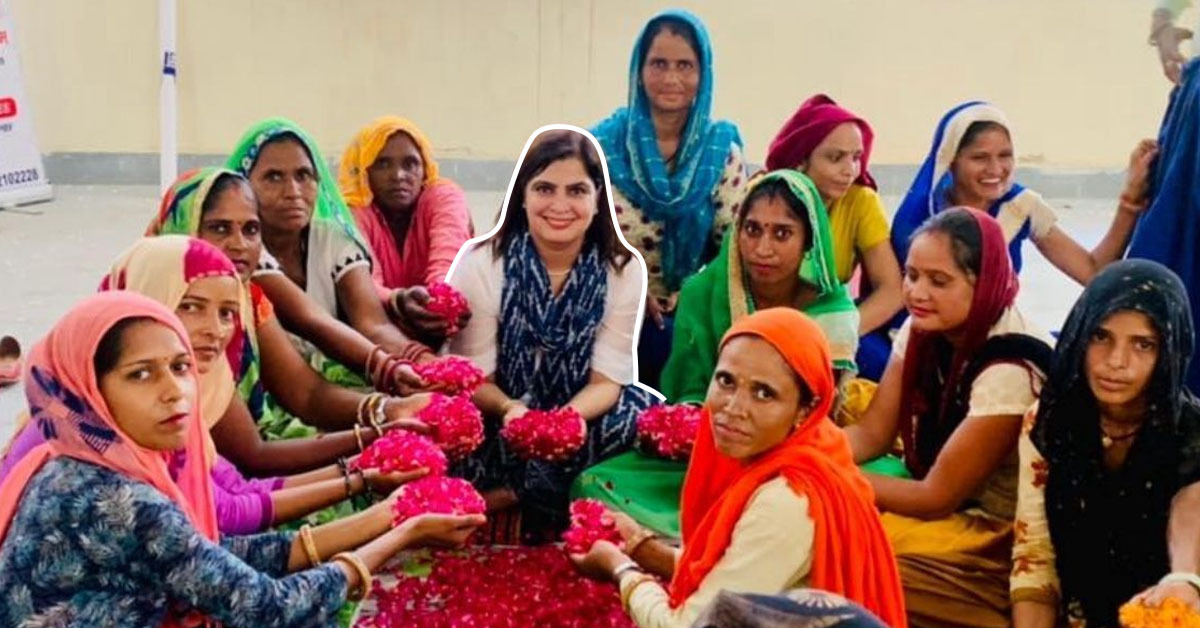
After her children went to college, Poonam Singh felt an overwhelming sense of loneliness. Married at 18, the Gurgaon resident faced the proverbial ‘Empty Nest Syndrome’. She had many dreams, but most remained unfulfilled as she remained tied in the intricacies of everyday life.
Alone, depressed and in search of her identity, her mother advised her to visit a temple. Looking for solace, she headed to a nearby temple and offered some flowers to the deity. What happened next shocked her. The flowers were thrown into a garbage bin without even being kept at the deity’s feet.
As she sat at the temple for a while, she noticed that all flowers faced the same fate. Disturbed by this, the then 37-year-old returned home and researched about what happens to flower waste at temples. An International Journal for Research in Applied Science & Engineering Technology report states that every year, approximately eight million tonnes of waste flowers are dumped in Indian rivers. Poonam adds that floral waste reportedly accounts for 16 percent of the river pollutants.
Poonam had found her calling and set out to find ways to make the most of floral waste. In June 2019, she set up Aaruhi Enterprises with her friend Pinki Yadav, and started making incense sticks, dhoop sticks, diyas, idols and more, using floral waste.
Every month, her venture recycles 1,000 kg of floral waste and earns more than Rs 2 lakh. The entrepreneur, now 41, has also provided training to over 3,000 women on making these products using floral waste, enabling them to make the most of waste.
How the venture started
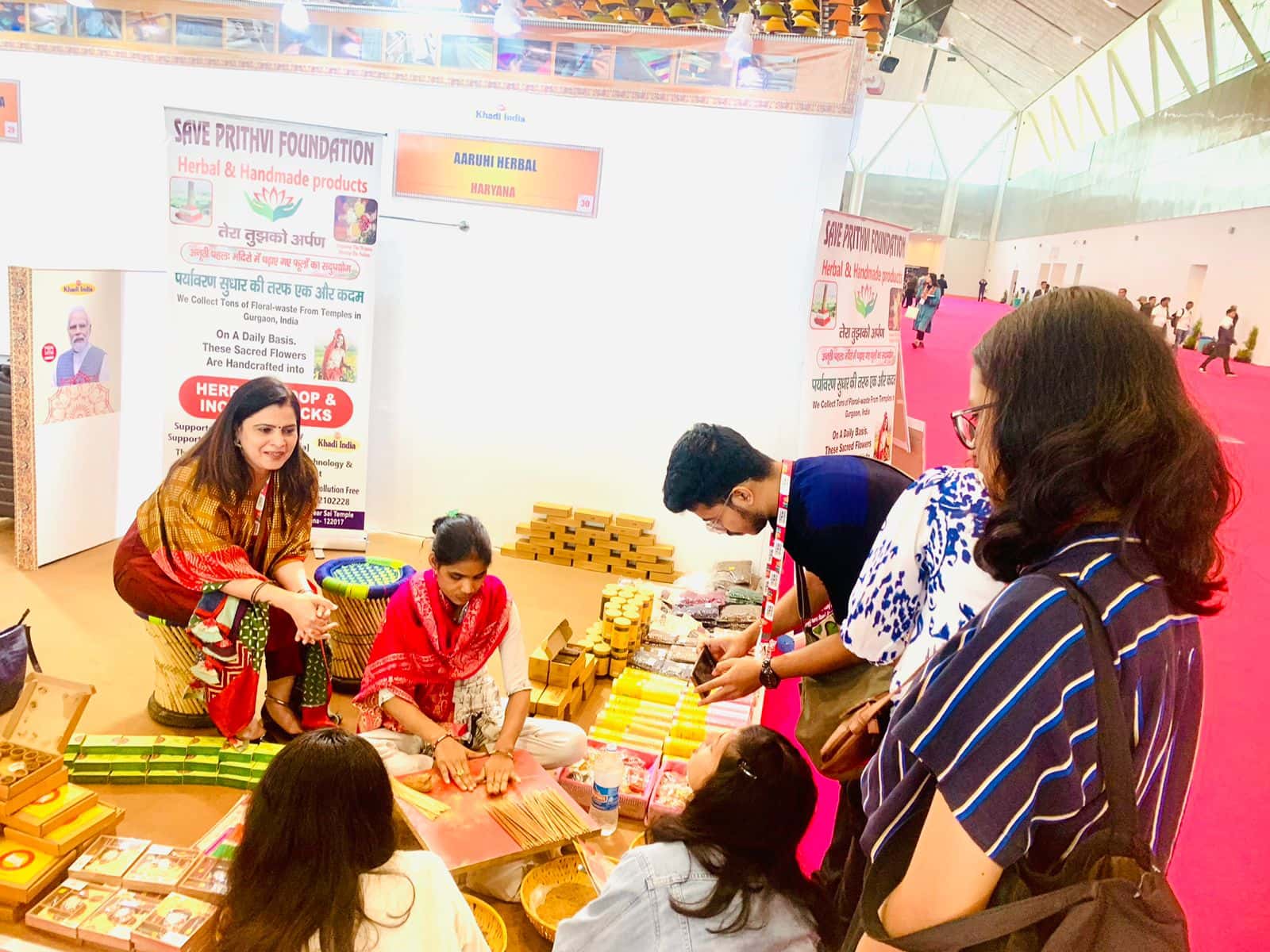
Poonam harboured dreams of becoming a doctor, but life had other plans. Before she could complete her education, she was married. Soon, she had two children and life revolved around them. As the children started school, Poonam slowly restarted her education and pursued a BEd (Bachelor of Education) degree and entered a teacher training programme.
However, she couldn’t pursue a career as a teacher. Busy with household chores and taking care of her family, she didn’t find the time to socialise or build a strong friend’s circle. So when her children left for hostel in 2018, she decided to reclaim her life and build a better future for the coming generations.
She almost went through an existential crisis, she shares.
“I just didn’t know what to do. What was the purpose of my life? I was depressed, alone, without a clear trajectory of life. My mother asked me to visit a temple as she felt it would make me happy. At the same time, Pinky, too, was going through a tough time and asked me if we could do something together,” shares Poonam with The Better India.
As highlighted above, she found her answer at the temple that changed her life.
“I found that tonnes of flowers were being dumped into the river daily. I found a company that was recycling flowers and asked for their help. They asked for my profile and said that they would let me know if they deemed it fit,” she adds.
Their reply fuelled Poonam’s desire further and cemented her desire to look for solutions of her own. She was no longer going to let other people’s opinions define her self-worth.
As she looked for what she could make with recycled floral waste, she came across a small business near her house who used cow dung powder to make incense sticks. Could she do the same with flowers?
In a small space provided by her brother, Poonam set up her unit. From June 2019, she will get up at 5 am and go to temples near her residence. There, she would request the staff to give her the waste flowers. Some obliged, but they were also mixed with other waste.
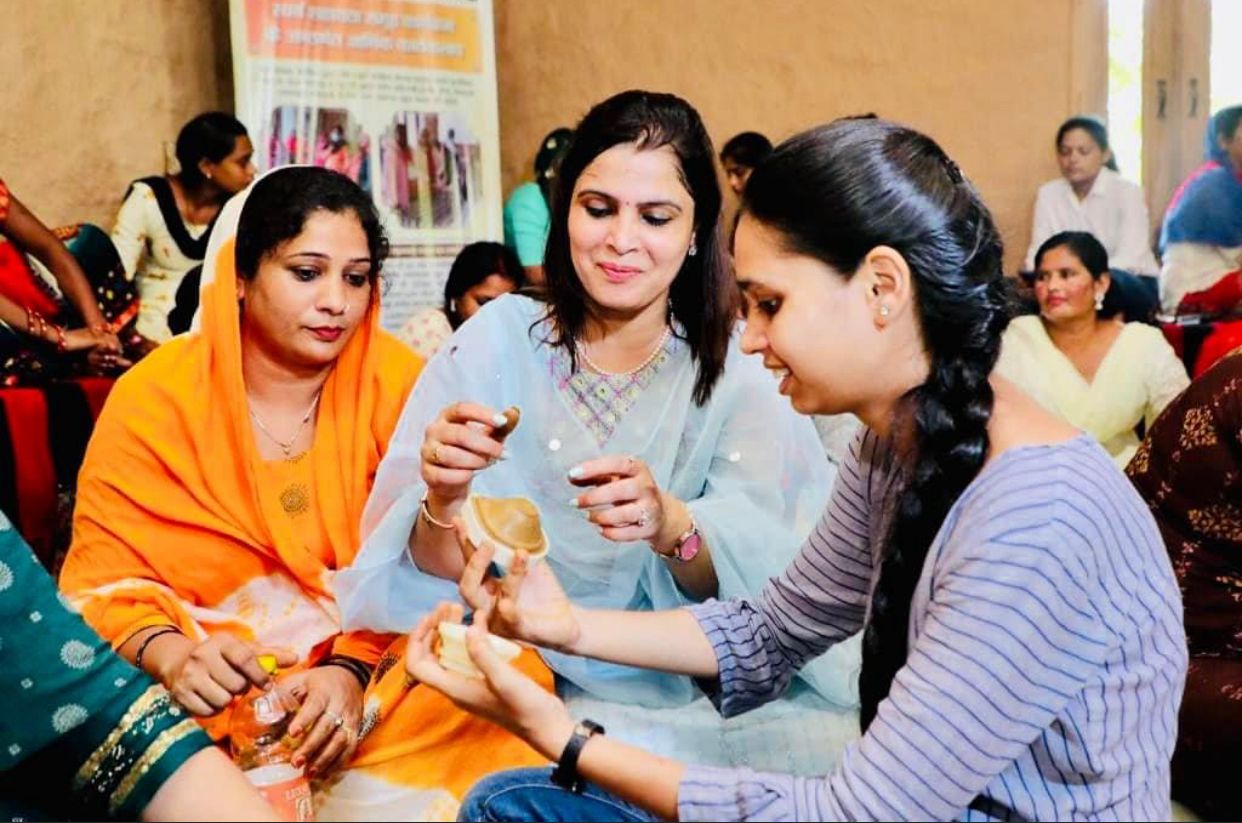
By 9 am, she brought all the waste in her car, segregated it and dried it under the sun. In hopes of being able to experiment with these dried flowers, she faced her first hurdle.
“After drying the flowers for almost two months, I was going to powder them. I even bought a pulverizer machine, but I didn’t factor in the weather, and the flowers got drenched in the rainfall. All my flowers were spoiled and I had to start all over again,” shares Poonam.
Not one to give up, she visited many temples again, and repeated the whole process. This time, she was able to successfully dry and powder the flowers. Using these powdered flowers, ghee, ‘havan’ products, and other ingredients, she tried her hand at making dhoop sticks. Through some permutations and combinations, and hours of working, she found the winning combination of 16 herbs sometime in September 2019.
“It was Janmashtami 2019. I took these dhoop sticks and gave them to the temple priest who supported me. He was so happy and promised to give me segregated floral waste,” smiles the entrepreneur.
Having initially invested her savings into the business, Poonam also took a Mudra loan to support her venture.
She claims that her products are organic and made with almost 80 percent floral waste. Unlike other incense and dhoop sticks, Aaruhi products don’t have charcoal in them.
Creating 3,000 ‘Flower Recyclers’
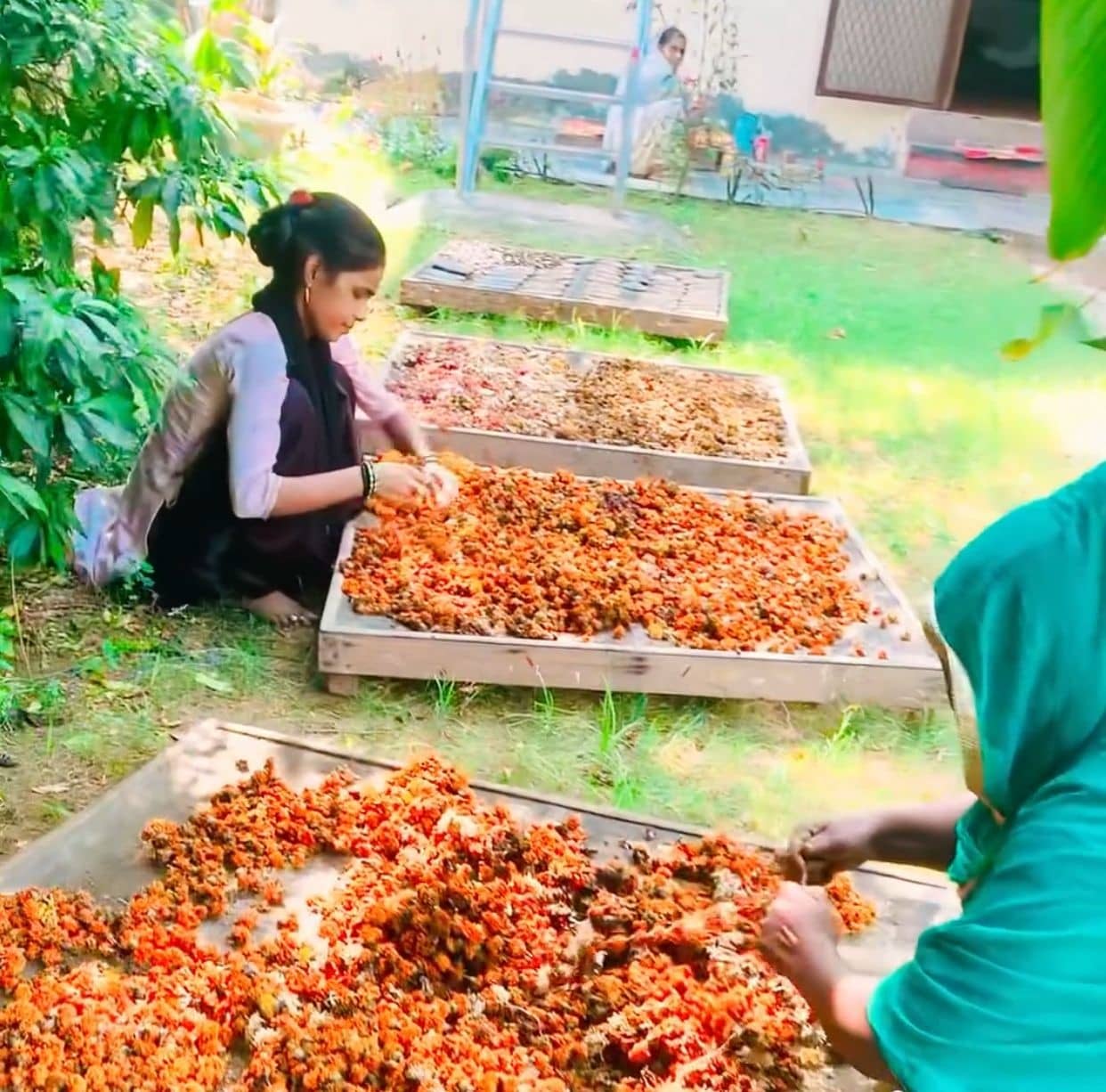
Now that the first step was sorted, the next step was selling it. But where would she sell it? She decided to set up a stall at Dilli Haat and at other exhibitions.
“The response was really good at the first stall I set up at Dilli Haat. Some teachers visited one of the exhibitions and wished to see my factory. Post that, they invited me to speak to their students,” adds Poonam.
Just as things started looking up, she was hit by another roadblock – the COVID-19 pandemic. With the entire country shut, there were no exhibitions too. Poonam decided to turn this into an opportunity. She started selling her products online through her website, Whatsapp and Facebook.
“When one door shuts, another one opens. Along with creating an online presence, I also worked on building a space through which I deliver talks and conduct skill-based programmes to generate a livelihood for underprivileged women. It is called the Save Prithvi Foundation,” she adds.
Poonam is now a master trainer at Khadi India, National Cooperative Union of India, and has conducted training programmes with many government organisations like Krishi Vigyan Kendras in Jammu, the rural development programme and more. She has trained over 3,000 women and showed them a way to become self-reliant, while helping the environment.
She collects floral waste from over 15 temples in Delhi-NCR today and gets almost 100 kg of waste every three days. Besides dhoop, which is her bestseller, she makes idols and air fresheners. Her products range from Rs 50-350, earning her a monthly income of Rs 2 lakh. Her dhoop stand and packaging too, is made from waste. She employs 5 women at her unit, who she calls the ‘flower recyclers’.
For Poonam, this business helped her build her identity and make a difference in the environment and lives of countless women. Her dream is to make India a country where not even one religious place throws flowers in the garbage.
To all women like her, looking to fulfil their dream, she says, “We all get one opportunity in life to carve a path for ourselves. Don’t miss it. Live for yourself and do what makes you happy. The first step is always difficult, but once you’ve taken it, there is no looking back,” she says.
Aaruhi Enterprise products will soon be available on Amazon and Flipkart. You can also purchase them through the website.
(Edited by Padmashree Pande; All photos courtesy Poonam Singh)
If you found our stories insightful, informative, or even just enjoyable, we invite you to consider making a voluntary payment to support the work we do at The Better India. Your contribution helps us continue producing quality content that educates, inspires, and drives positive change.
Choose one of the payment options below for your contribution-
By paying for the stories you value, you directly contribute to sustaining our efforts focused on making a difference in the world. Together, let's ensure that impactful stories continue to be told and shared, enriching lives and communities alike.
Thank you for your support. Here are some frequently asked questions you might find helpful to know why you are contributing?





